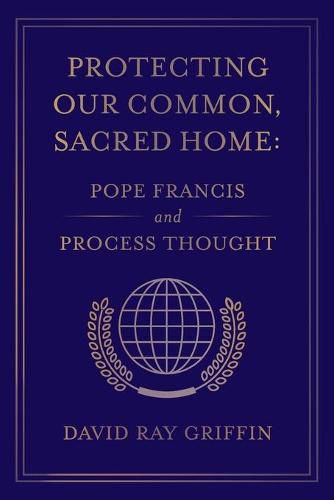Readings Newsletter
Become a Readings Member to make your shopping experience even easier.
Sign in or sign up for free!
You’re not far away from qualifying for FREE standard shipping within Australia
You’ve qualified for FREE standard shipping within Australia
The cart is loading…






As the world increasingly grapples with the consequences of global warming and its resulting climate changes, the urgency of the crisis has become inescapable, despite continuing corporate-led efforts at fomenting doubt and denial. Then in June 2015 there occurred a powerful intervention into the discussion by Pope Francis. His encyclical, Laudato Si’ On the Care for Our Common Home, called for swift action on climate change. Almost simultaneously with the official publication of this encyclical, there was the biggest-ever conference of the movement known as process thought, based primarily on the philosophy of Alfred North Whitehead. This conference discussed various ways in which process thought could be helpful with respect to the global environmental crisis, especially climate change.In this book, David Ray Griffin undertakes to show why process thought–meaning process philosophy, theology, and social/economic thought–provides a natural and helpful context in which to expound and defend the ecological message in the pope’s encyclical. In concise arguments, Griffin shows that the position of Whitehead-based process thought on climate change and related matters is remarkably similar to that of Pope Francis in the encyclical. This similarity is important for two reasons. First, as process thought and the pope’s encyclical come out of very different traditions, the similarity allows each to add credibility to the other. Second, process thought, which embodies a long-standing type of philosophical theology that is consistent with today’s best science and has been growing in influence, can be used to support dimensions of the pope’s encyclical that might be rejected by secular minds.
$9.00 standard shipping within Australia
FREE standard shipping within Australia for orders over $100.00
Express & International shipping calculated at checkout
As the world increasingly grapples with the consequences of global warming and its resulting climate changes, the urgency of the crisis has become inescapable, despite continuing corporate-led efforts at fomenting doubt and denial. Then in June 2015 there occurred a powerful intervention into the discussion by Pope Francis. His encyclical, Laudato Si’ On the Care for Our Common Home, called for swift action on climate change. Almost simultaneously with the official publication of this encyclical, there was the biggest-ever conference of the movement known as process thought, based primarily on the philosophy of Alfred North Whitehead. This conference discussed various ways in which process thought could be helpful with respect to the global environmental crisis, especially climate change.In this book, David Ray Griffin undertakes to show why process thought–meaning process philosophy, theology, and social/economic thought–provides a natural and helpful context in which to expound and defend the ecological message in the pope’s encyclical. In concise arguments, Griffin shows that the position of Whitehead-based process thought on climate change and related matters is remarkably similar to that of Pope Francis in the encyclical. This similarity is important for two reasons. First, as process thought and the pope’s encyclical come out of very different traditions, the similarity allows each to add credibility to the other. Second, process thought, which embodies a long-standing type of philosophical theology that is consistent with today’s best science and has been growing in influence, can be used to support dimensions of the pope’s encyclical that might be rejected by secular minds.